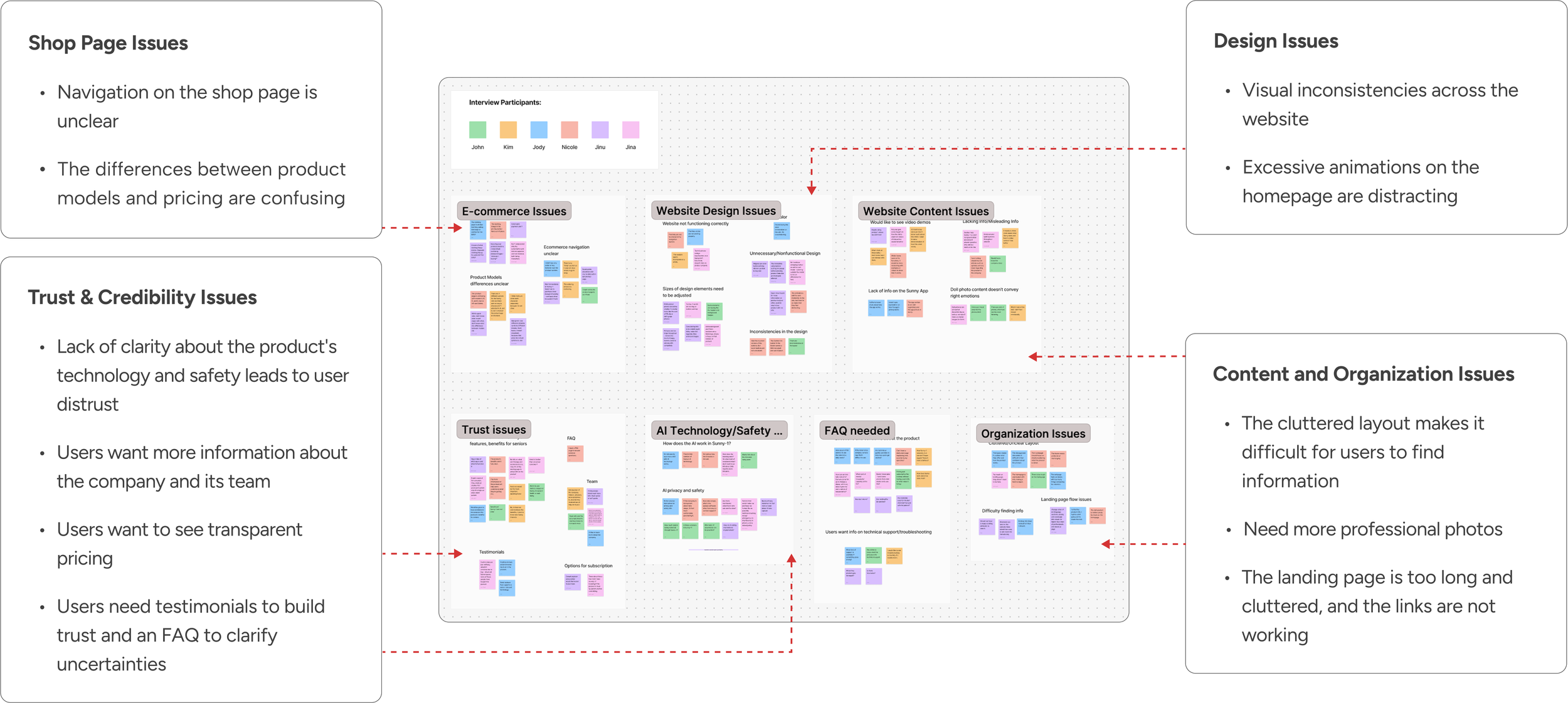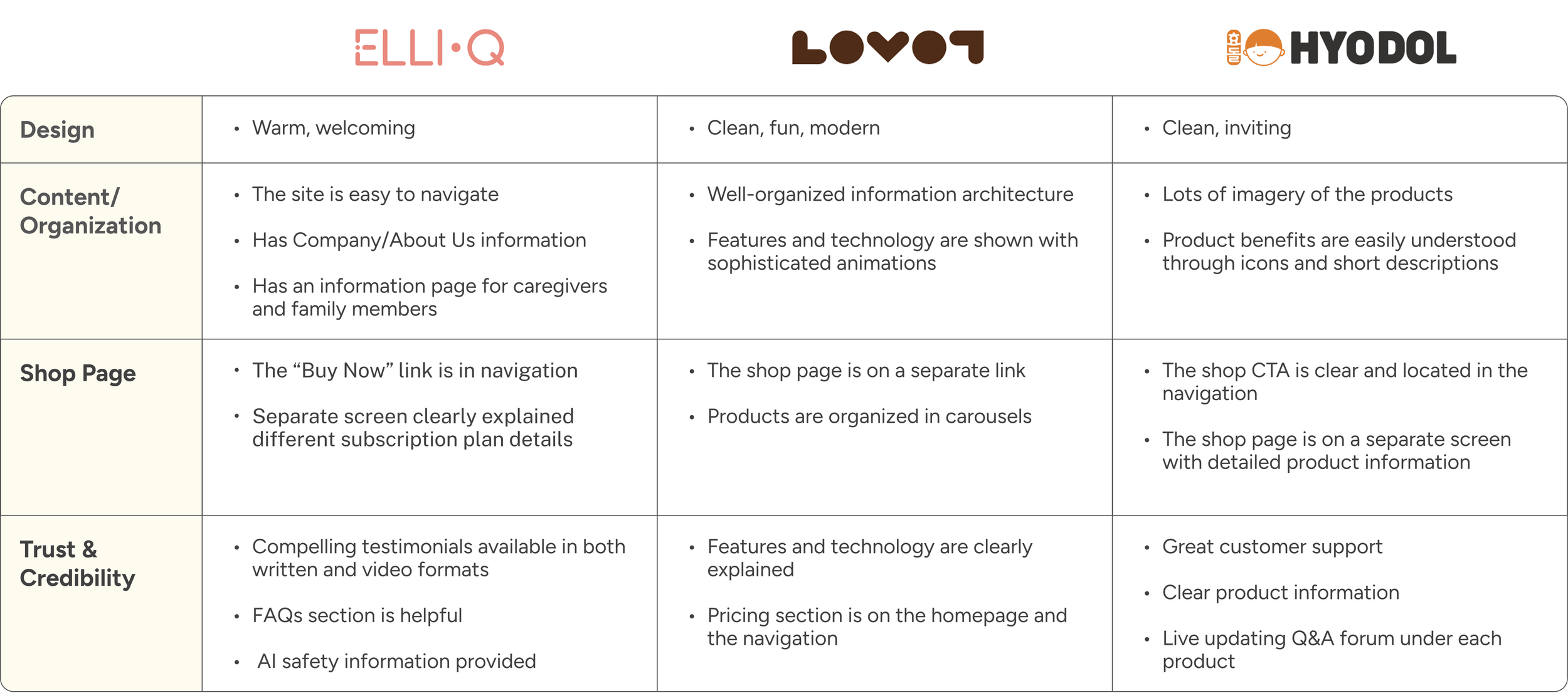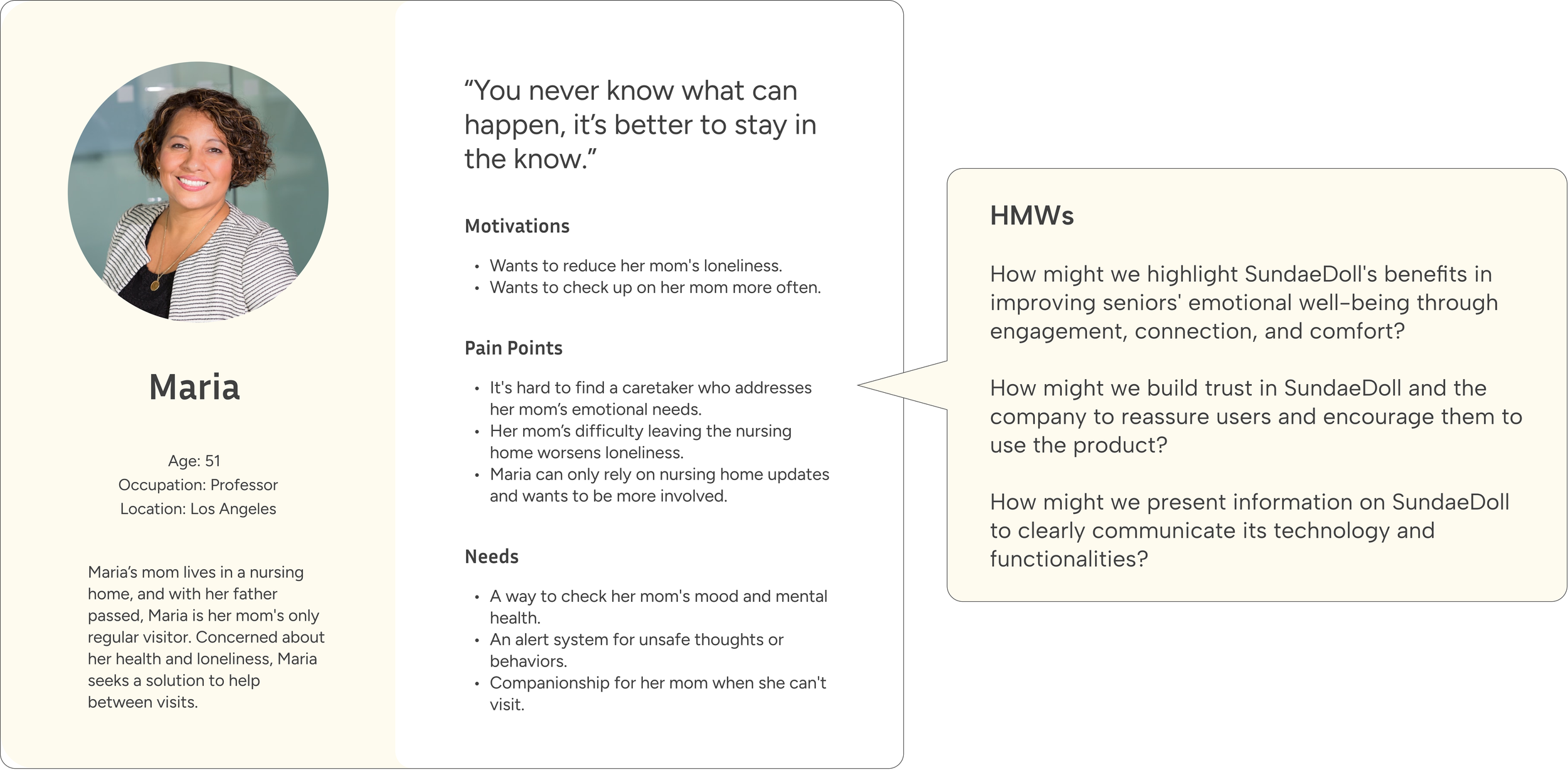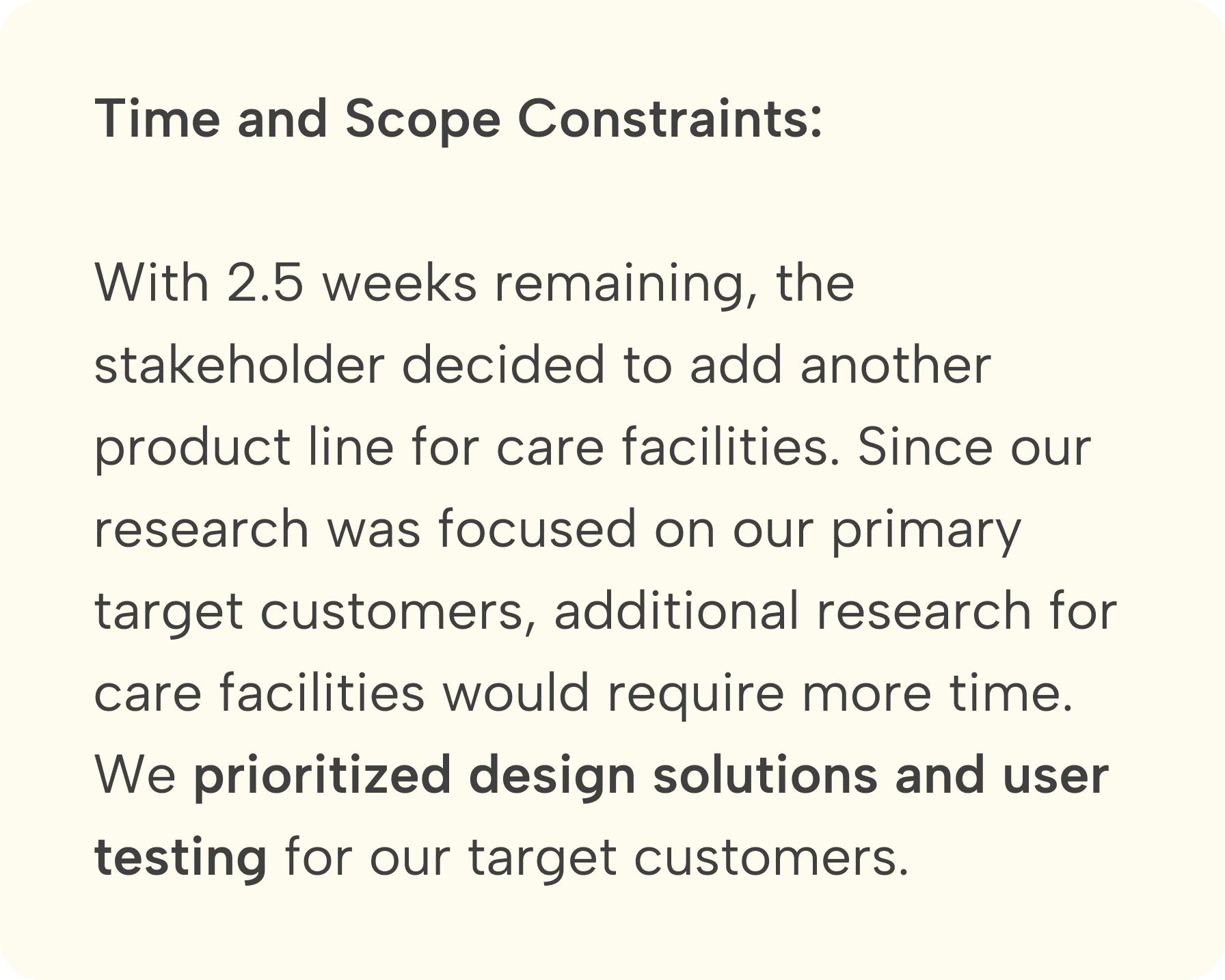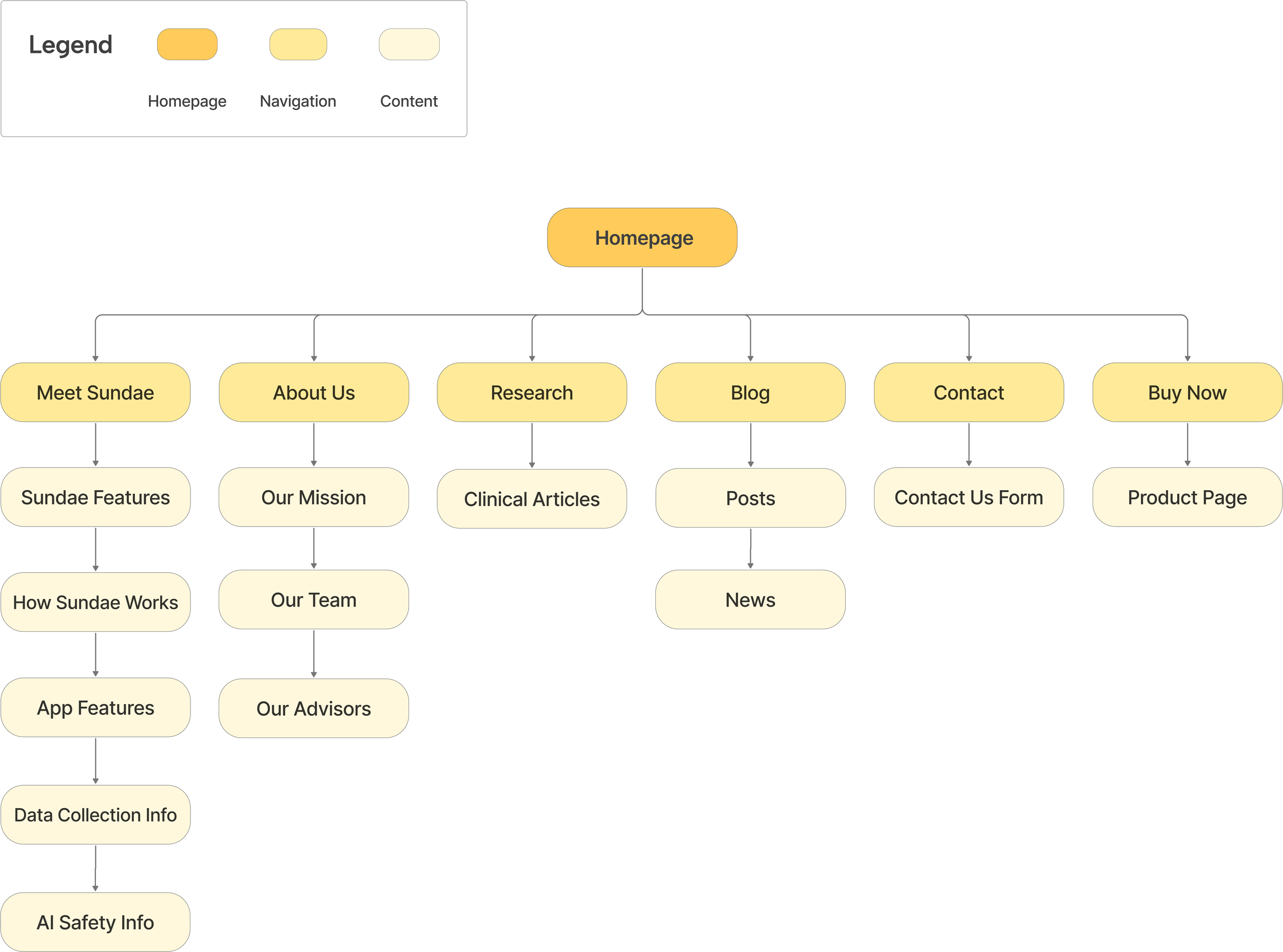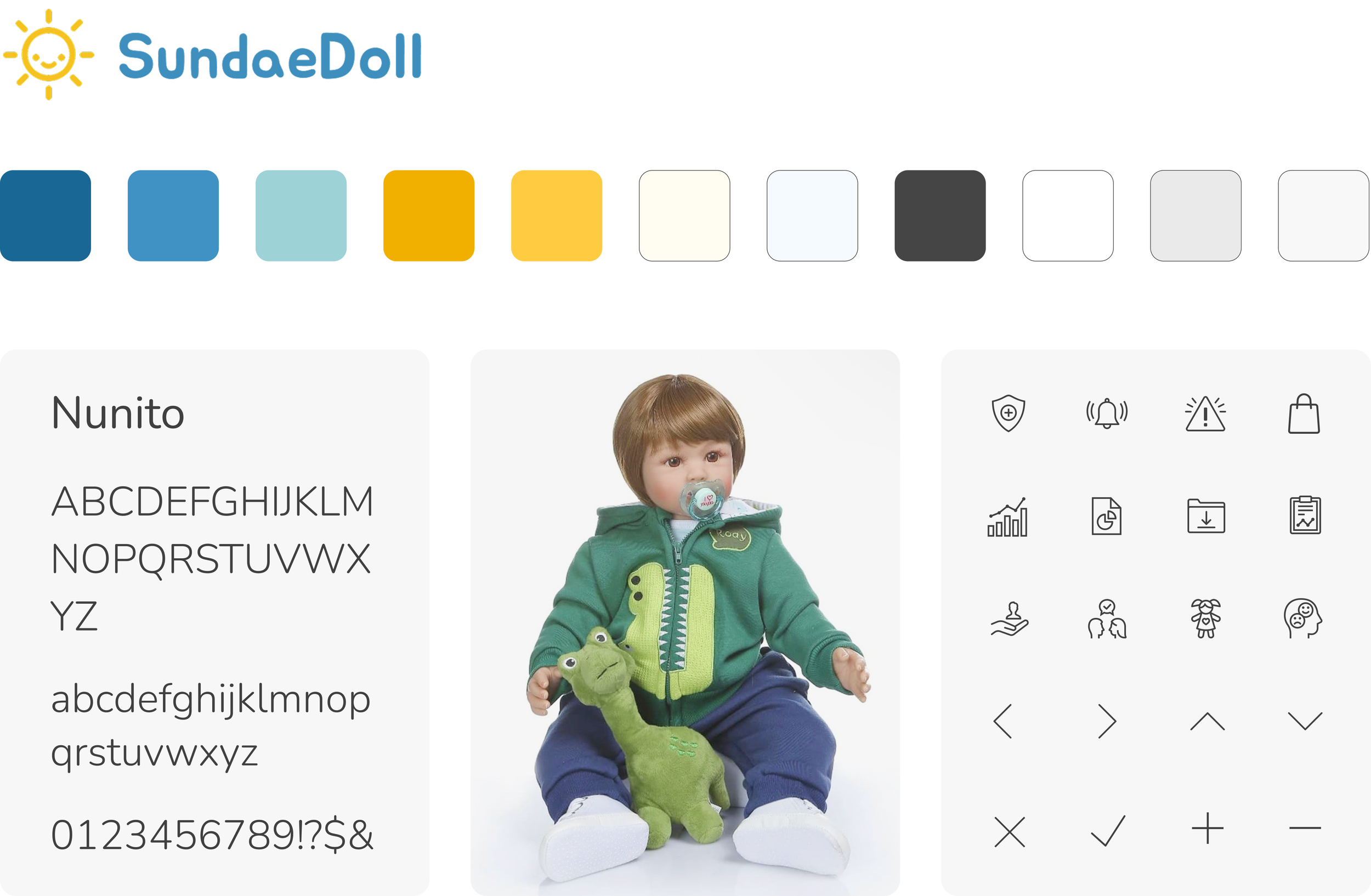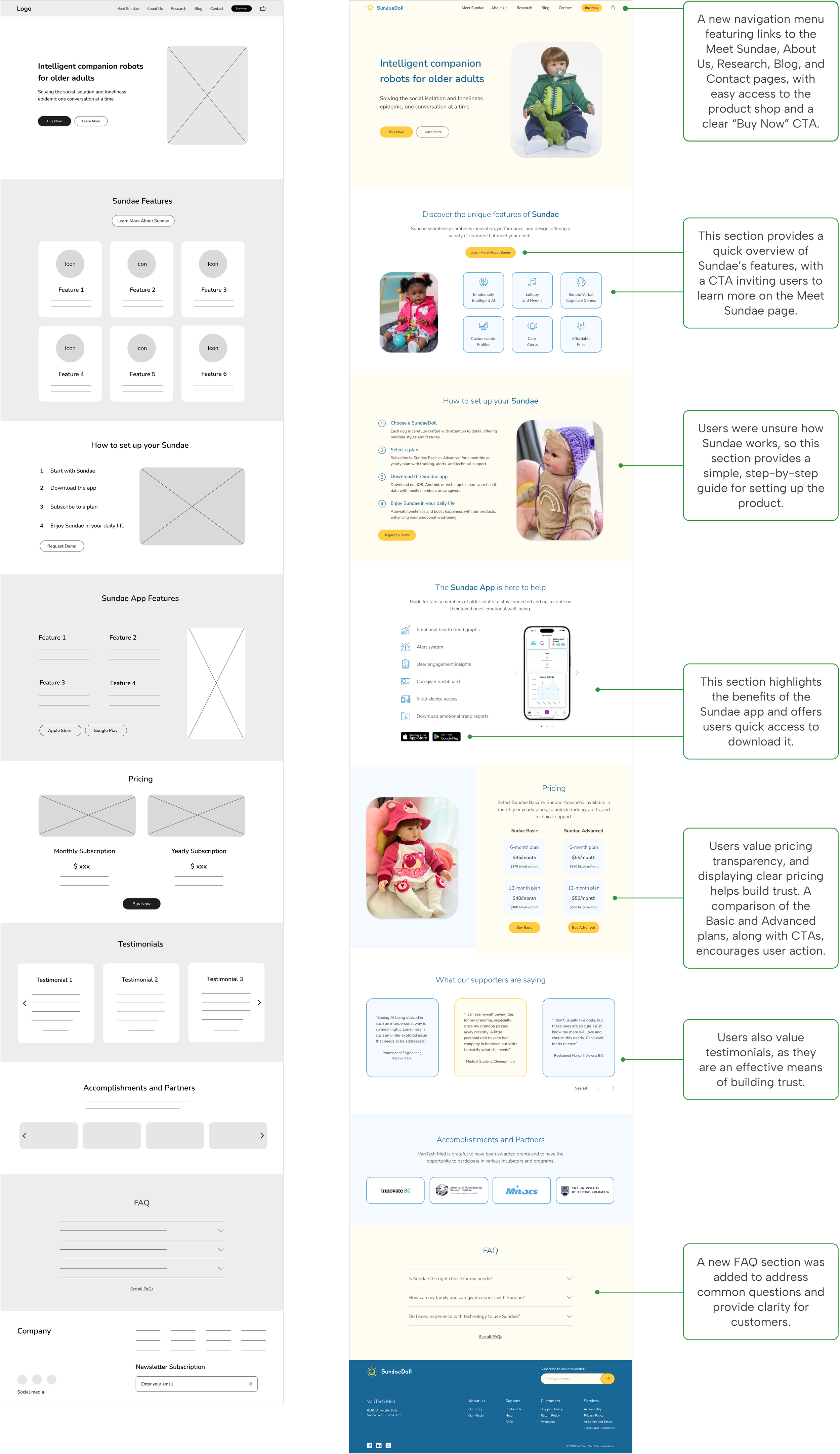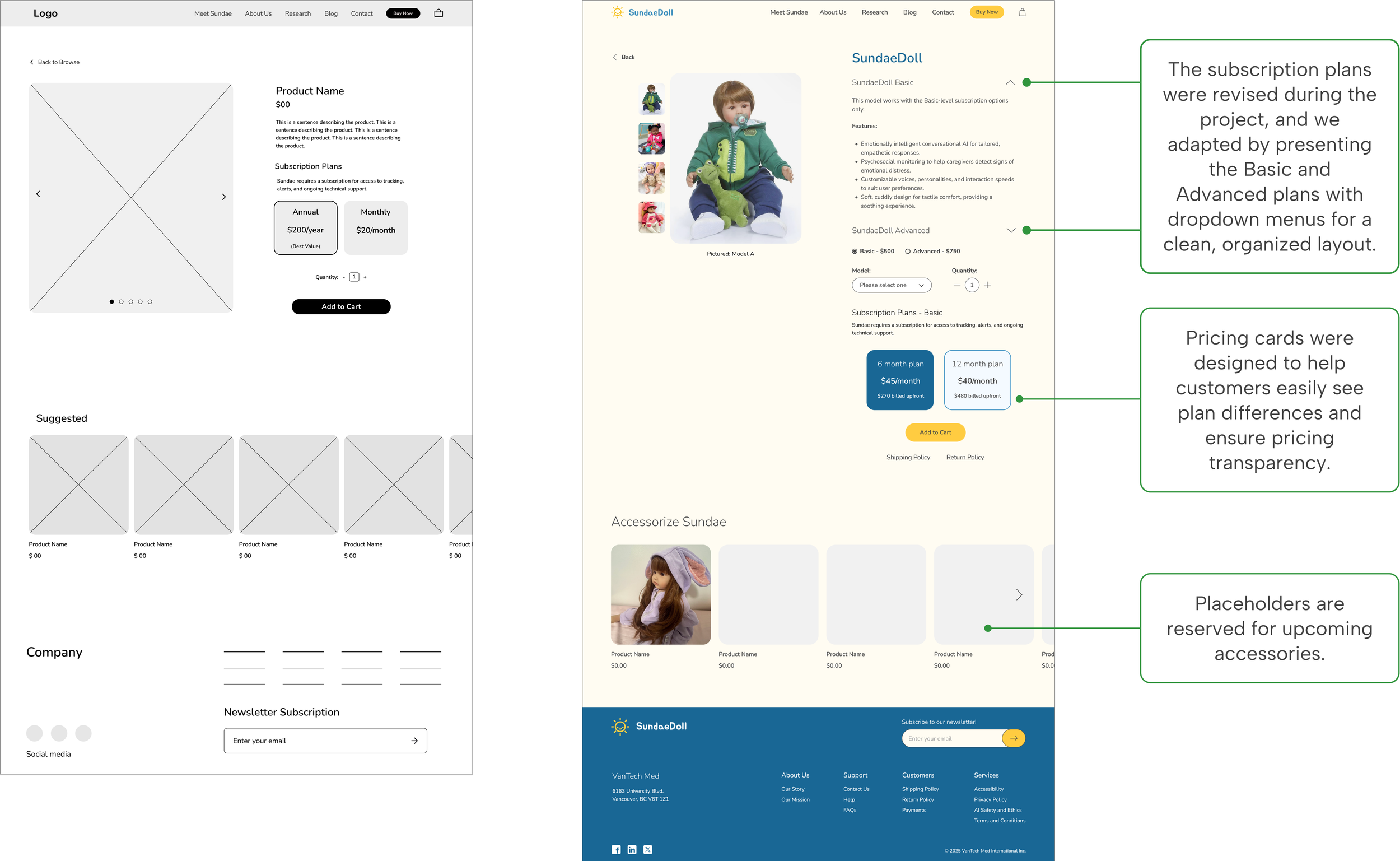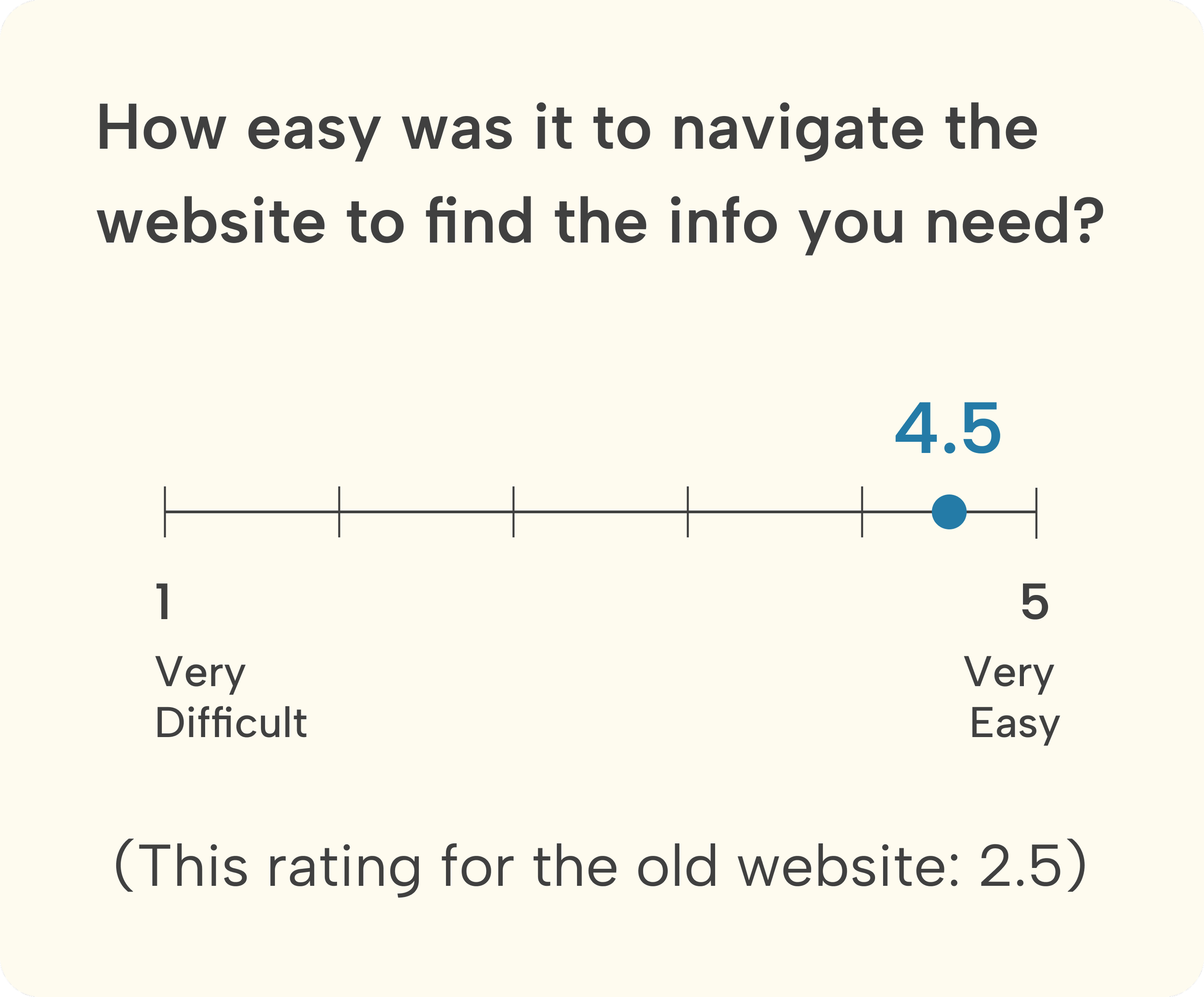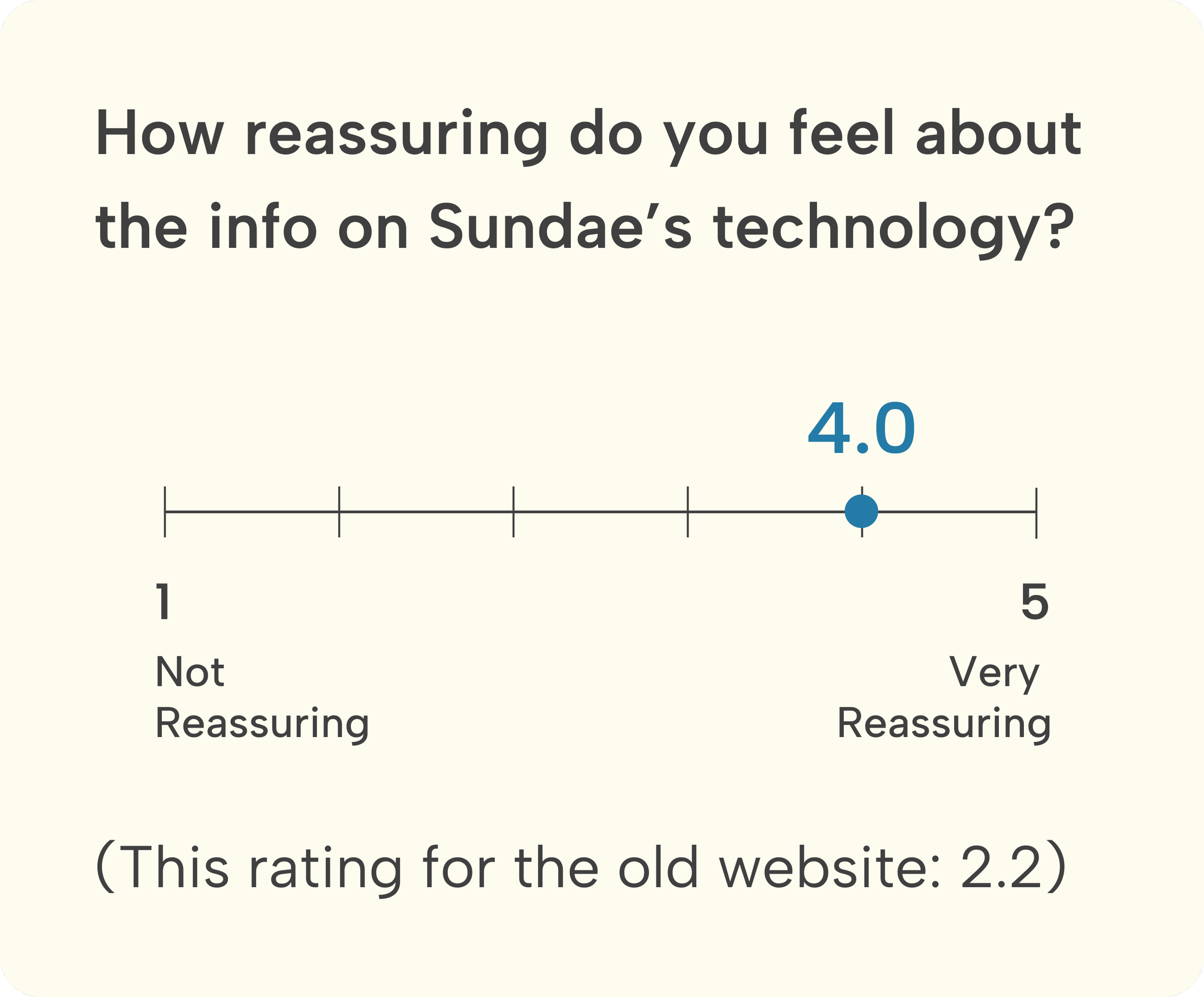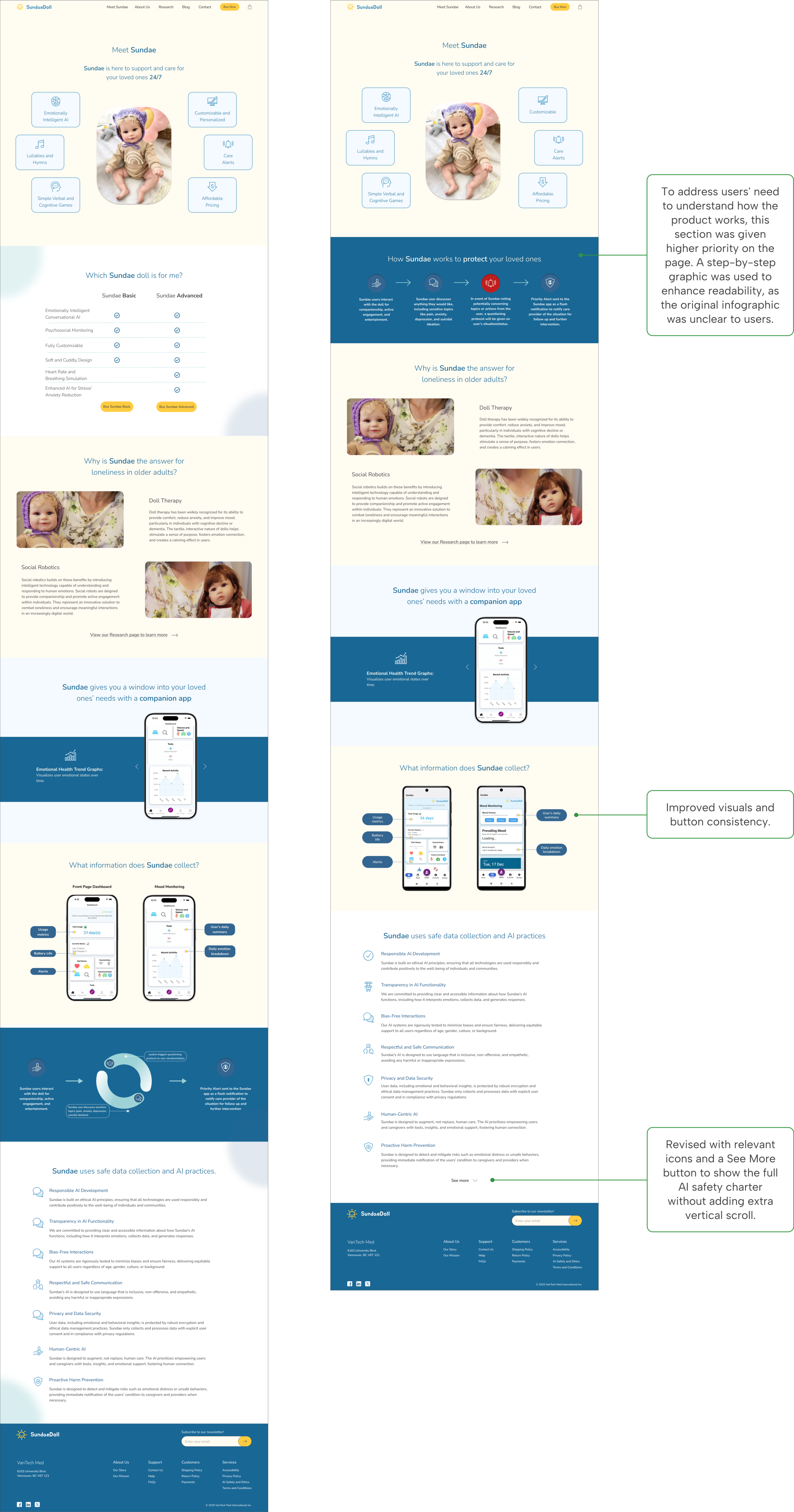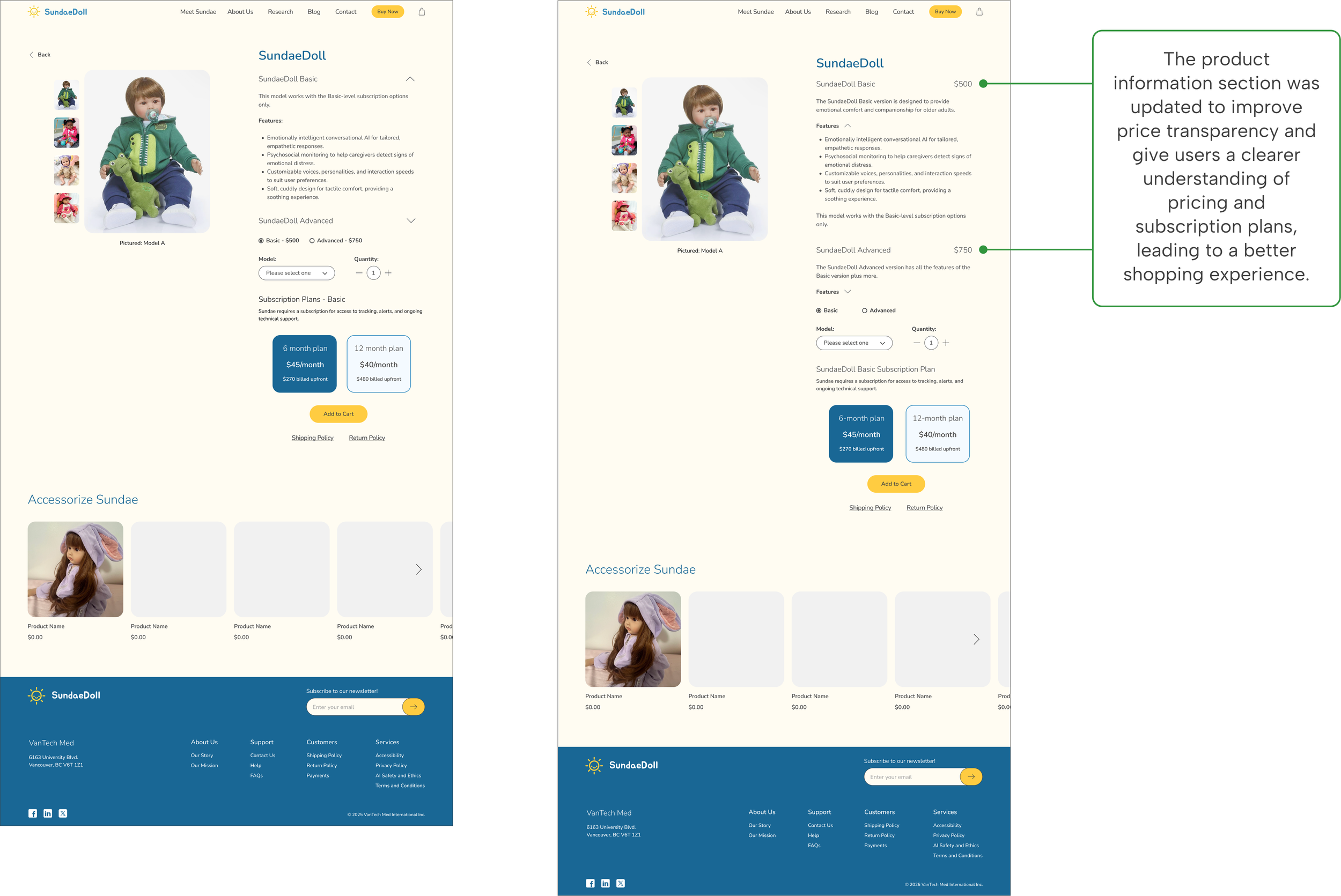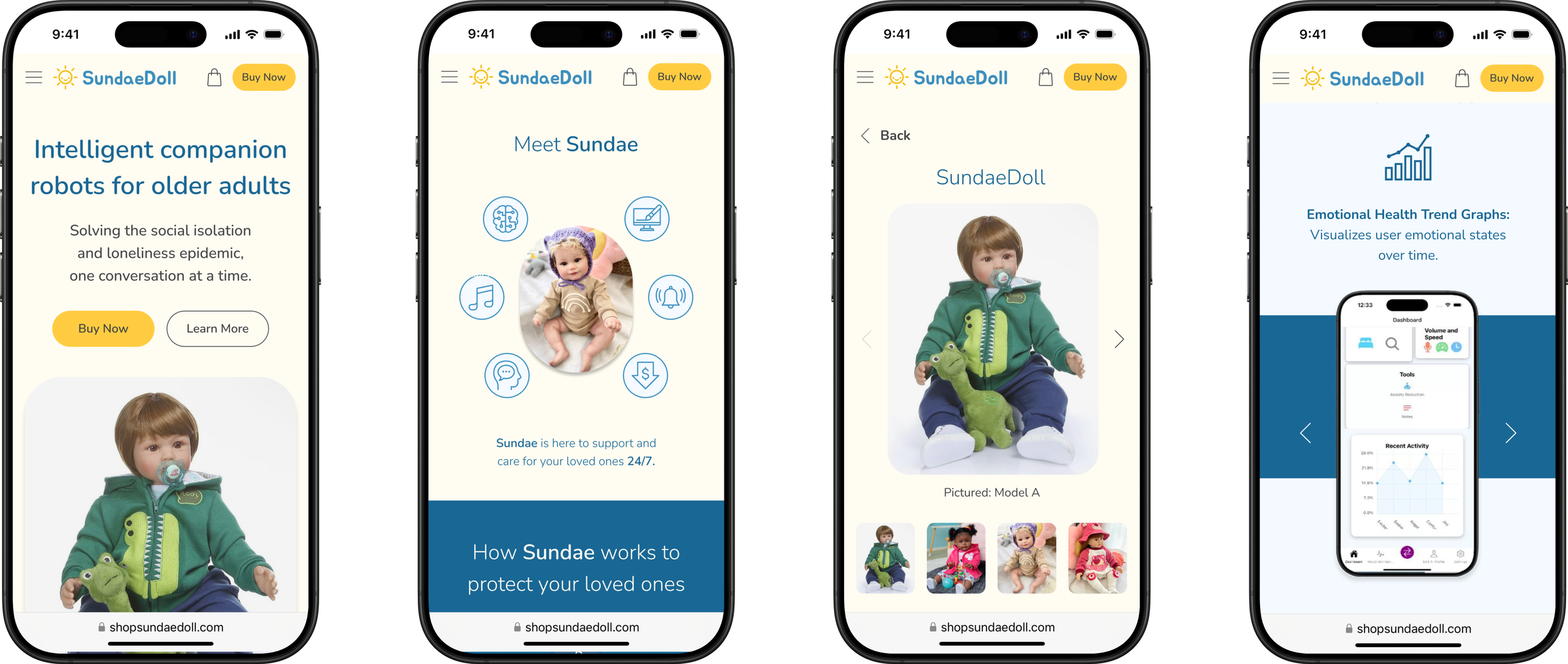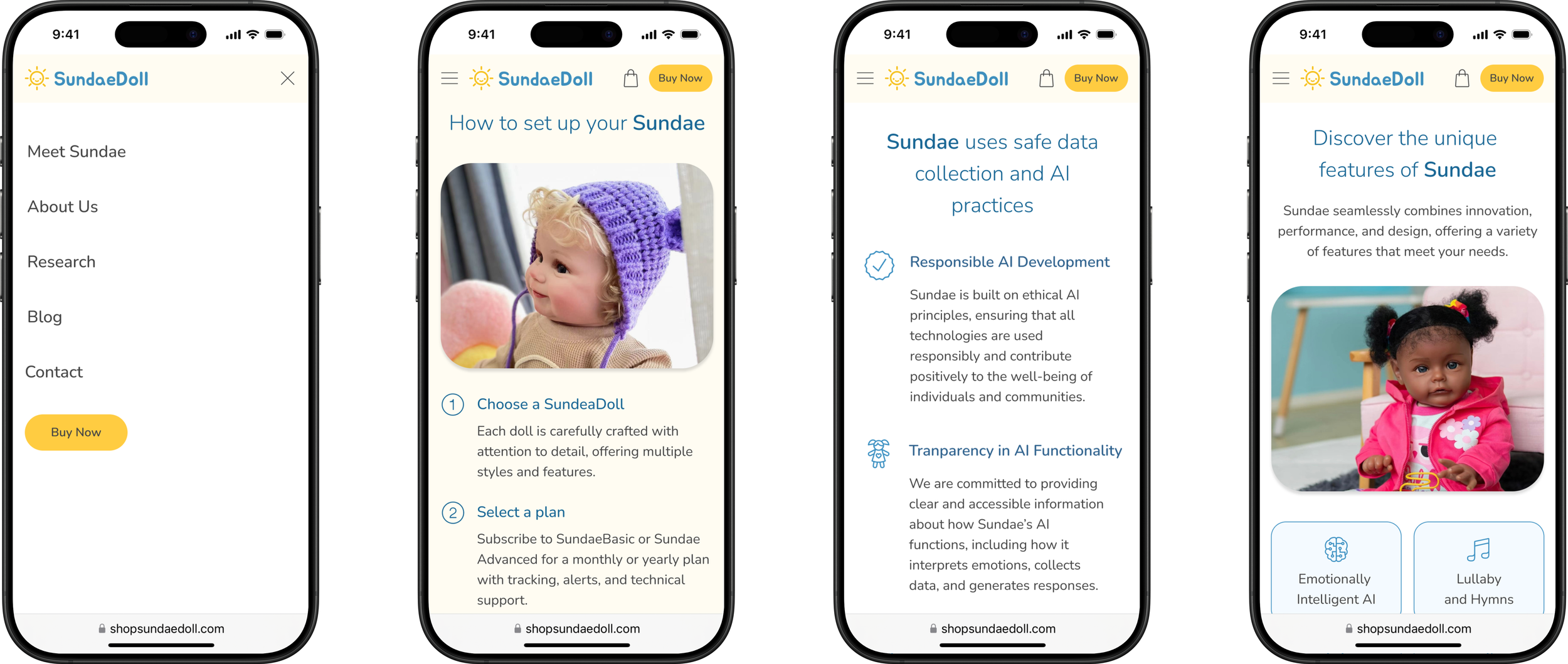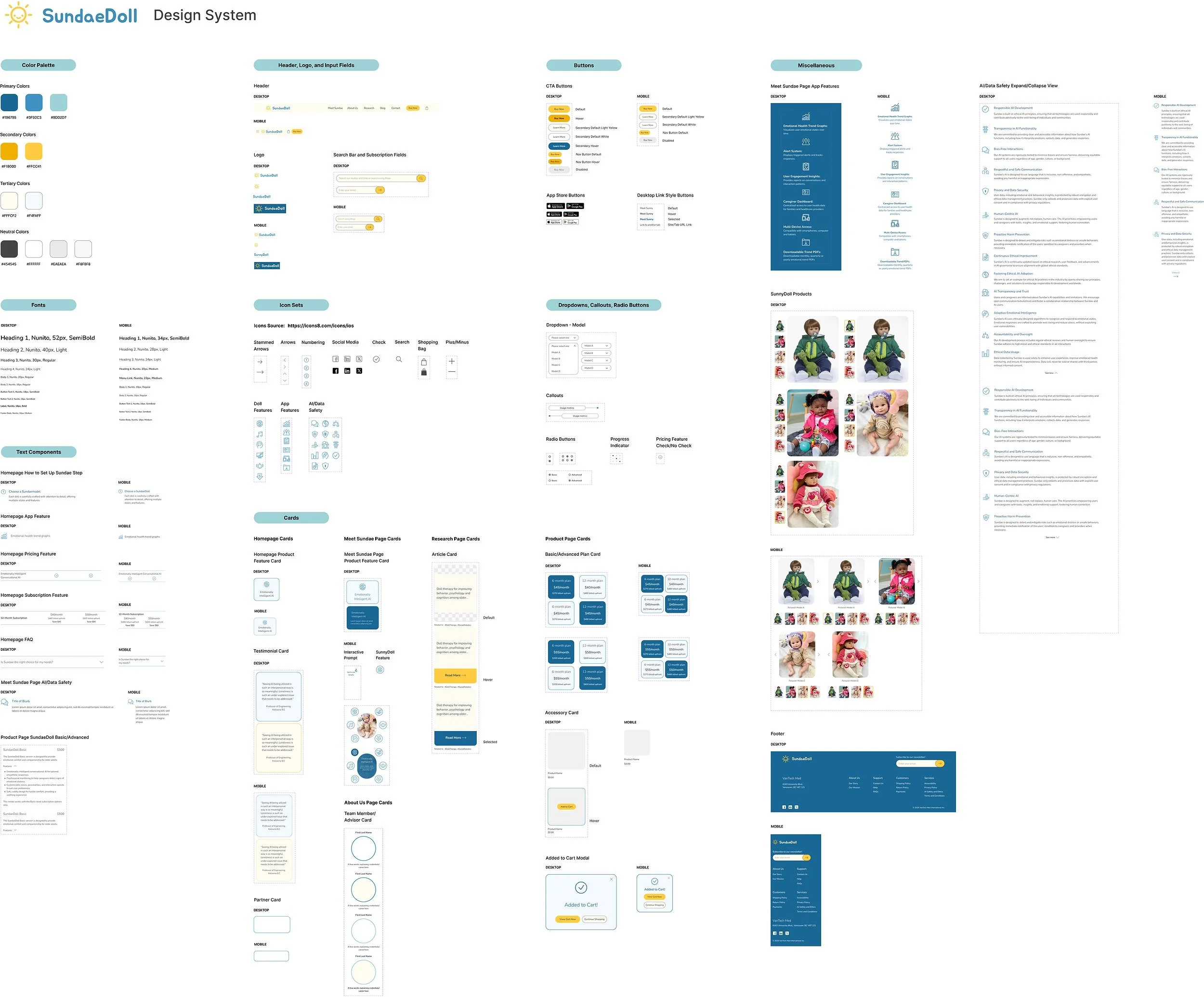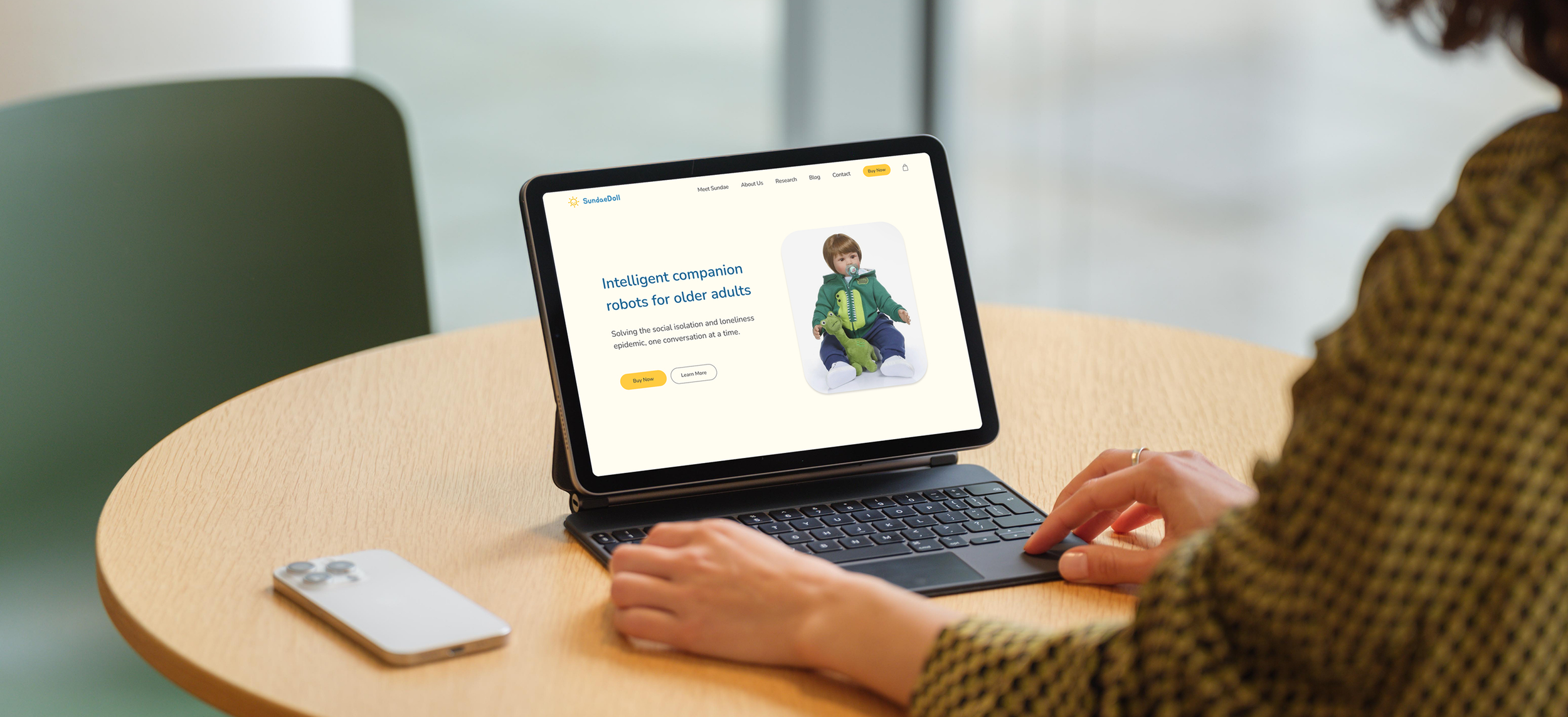Transforming SundaeDoll’s website into a trustworthy and user-friendly experience for seniors and their families, helping them better understand the product and shop with confidence.
Client Project
Client: VanTech Med
Stakeholder: CEO
Shipped Product
Team:
3 UX/UI Designers
3 Developers
My Role:
Lead UX/UI Designer
Timeline
4 Weeks
Tools
Figma
FigJam
Otter.ai
Google Meet
Skills
UX/UI Design, User Research & Interview, Ideation, IA, Design System, Wireframing, Prototyping, User Testing
OVERVIEW
VanTech Med is a Canadian startup using AI and robotics to improve the lives of seniors. Its core product, Sundae (formerly Sunny), is an AI-powered doll designed to alleviate social isolation and loneliness among the elderly.
Background
Problem
SundaeDoll’s existing website is undermining customer engagement and sales due to several key issues:
Struggling to balance technical functionality with commercial presentation
Lack of essential content and trust-building features
Cluttered design, difficult navigation, and poor usability
The redesign improved design, navigation, content, and usability. We revamped key pages and created new ones for Meet Sundae, About Us, and Research to clarify product information, enhance usability, and build customer trust.
Solution
Impact
Built customer trust through the redesigned website, raising the trust score from 2.3 to 4.2 out of 5
The ease of navigation improved by 80%
Users achieved a 100% task completion rate for adding a product to the cart, increasing the ease-of-use rating from 1.8 to 4.8 out of 5
"This design team was amazing to work with. All members were very engaged, knowledgeable and handed in all deliverables on time. Each individual contributed meaningfully to the end project. They were able to actively listen to our team's requirements, issues and concerns and provide great work arounds and resolutions. I had a great experience with this team!”
- Vanessa L., CEO of VanTech Med
Testimonial
Design Preview (Before & After)
or scroll down to view the full case study
RESEARCH
Project Kickoff
Understanding the client’s business goals and her concerns with the existing website
Our kickoff meeting clarified the client’s business goals — increasing customer engagement, building trust, and driving conversions. We also gained insight into the stakeholder’s perspective and her concerns about the current website:
Diving deeper into the website’s usability issues
Heuristic Evaluation
After meeting with the stakeholder, we conducted a heuristic evaluation using Nielsen Norman’s 10 usability principles to identify design issues. I facilitated a workshop and created a presentation to visually highlight problems with the existing website.
User Interviews
Conducted the startup’s first user interviews and uncovered 4 key areas for improving the website
This was the startup’s first time conducting user interviews for the website, helping the stakeholder understand the value of user research in uncovering key challenges and informing effective solutions. After interviewing 6 potential customers (family members of seniors), the team collaborated on affinity mapping and identified 4 key areas for improvement:
1. Design
2. Content & organization
3. Shop page
4. Building trust and credibility
To address the issues identified by users, we analyzed 3 direct competitors to understand their approaches. These companies emphasized clean design, clear product information, and compelling customer testimonials.
Direct competitors’ approaches in these 4 key areas
Competitor Analysis
DEFINE
Persona
Our target users are mainly family members of seniors who can’t always be physically present with their loved ones and are seeking reliable solutions for companionship and convenient ways to stay connected.
Who are our target users and how might we help?
Changes, constraints, and solutions
Midpoint Review
IDEATE
Feature Prioritization
Finalizing must-have features to meet user and client needs
Considering the 4 key areas for improvement and the client’s needs, we collaborated with the stakeholder to confirm the must-have features for the new website and potential features for future improvements.
After confirming must-have features, we created a new site map to improve navigation. The old website confused users with a cluttered homepage and non-functional “Coming Soon” links. The new structure aligned the team and stakeholder on the site’s structure and made it easier for users to find information and navigate.
Refining site map to improve the navigation
Information Architecture
Improving task flows to help customers understand the product and increase the add-to-cart rate
Task Flows
Users struggled to understand the product and abandoned the add-to-cart task due to the old site’s cluttered homepage and confusing navigation. The new website's flows guide users through a smoother journey to learn about Sundae and add a product to cart.
Task 1: Learn more about Sundae
Task 2: Add a product to cart
DESIGN
How did we tackle the 4 key improvement areas identified in our user research?
Design Solutions
Overview:
1. Design: a style guide to ensure consistency and enhance usability.
2. Content & Organization: improved content organization and crated a new navigation.
3. Shop page: clear product details, plans, and pricing in a streamlined layout.
4. Trust & credibility: new Meet Sundae, About Us, and Research pages.
1. Design
The redesign vastly differs from the original. With the logo, font, and only two primary colors blue and yellow provided, we created the style guide, expanded the color palette, and selected icons to align with the brand's professional yet friendly aesthetic. I led the design direction, and the team communicated and collaborated regularly to ensure design consistency.
2. Content & organization
I contributed to the homepage design and ensured consistency across different screens. The homepage showcases Sundae, featuring a clean, user-friendly design with streamlined navigation to help users easily access information. The layout highlights Sundae’s key features and product details, ensuring a seamless browsing experience.
Hi-fi
Lo-fi
3. Shop page
For the shop page, we enhanced the clarity of product details, plans, and pricing by organizing the information in an easily digestible format. Clear headings, bullet points, and a streamlined layout were implemented to enhance navigation on the shop page, making the Add to Cart process easy to follow.
Lo-fi
Hi-fi
We created new pages for Meet Sundae, About Us, and Research to enhance credibility and build trust with customers by providing clear, detailed information about Sundae’s features, technology, safe data collection, AI safety, doll therapy theory, and clinical articles, as well as the company’s team and mission.
4. Trust & credibility
TEST & ITERATE
We conducted usability testing with six participants to assess the design, uncover usability issues, and identify areas for improvement. The testing focused on the new navigation, user confidence after learning about the product, and the ease of adding a product to the cart.
Testing navigation, user trust, and add-to-cart ease to improve the user experience
User Testing
Success Metrics
What went well?
1. Homepage pricing section: clearer Basic vs. Advanced plan comparison
Areas for Improvement
Before
After
2. Revisions were made to the Meet Sundae page to meet user needs
Before
After
3. A better shopping experience
Before
After
We designed for desktop and also created the mobile version of the key screens to demonstrate to the client how the design would appear on mobile, ensuring a seamless, responsive layout and user experience.
Optimized for desktop and mobile devices
Responsive Design
UI Guide
Design system for handoff to developers
For the project handoff, we held a final meeting with the team, including developers, to ensure a smooth transition. We delivered the project's Figma file along with the design system, providing the client with a comprehensive reference for future updates and design continuity.
REFLECTION
Next Steps
I would like to measure these metrics:
Conversion rate: the proportion of users who complete desired actions, such as adding a product to a cart or making a purchase, indicating how effectively the site turns visitors into customers.
User retention rate: the percentage of visitors who return within a set time frame, showing how well the site sustains user interest and encourages repeat visits.
Lessons Learned
Collaborating with designers, developers, and stakeholders underscored the importance of cross-functional teamwork. I took the initiative to facilitate meetings, ensuring regular check-ins and clear communication to keep the team aligned across time zones.
Working with a startup, where priorities and requirements can shift quickly, taught me how to handle feedback, make adjustments as needed, and remain adaptable to change while maintaining the overall design vision.










